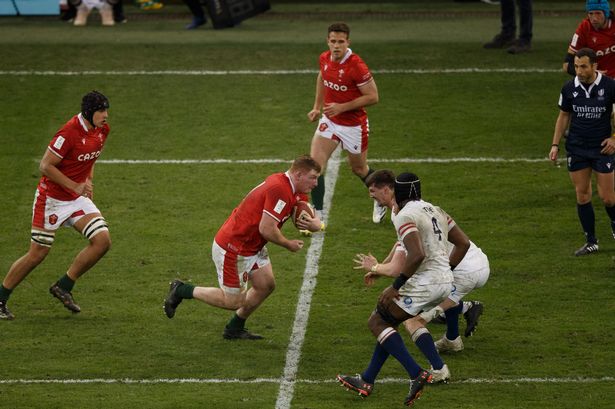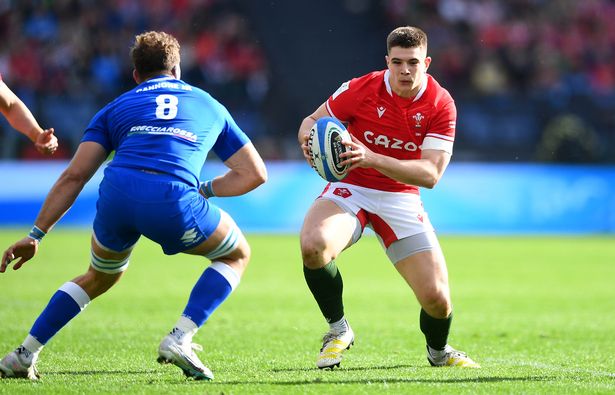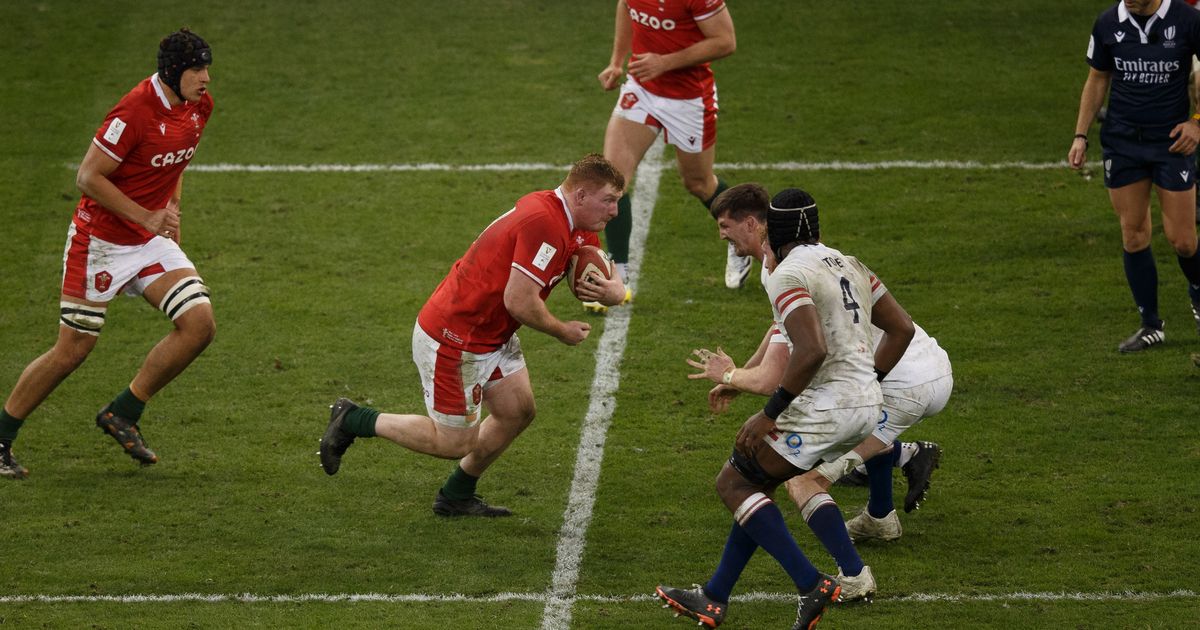Rhys Carre is back in the Wales squad but the 25-cap rule seems to be on borrowed time
18:00, 22 Oct 2025Updated 18:02, 22 Oct 2025
 Rhys Carre in action for Wales against England last year(Image: Gruffydd Thomas/Huw Evans Agency)
Rhys Carre in action for Wales against England last year(Image: Gruffydd Thomas/Huw Evans Agency)
In all honesty, the 25-cap rule has looked as though it was on borrowed time for quite a while now.
Last year, at the WRU AGM, the reaction to the potential scrapping of the rule was met with a warmer reception than getting rid of Warren Gatland. Of course, Gatland wasn’t long for Welsh rugby either – leaving months later after his disastrous second stint in charge.
But the 25-cap rule was something Gatland wasn’t keen on. The fact the previous eligibility rule was dubbed ‘Gatland’s Law’ didn’t sit well for a start.
But in Melbourne last summer, while Gatland was still in charge, he made it clear he was never keen on the law.
“There’s only one team being punished for that rule and that’s us,” Gatland said last year, before joking: “Maybe the players can go on strike again.”
Of course, players and agents aren’t fans of the law on the whole – with the players having been the driving force to get it reduced from 60 caps to 25 two years ago.
Back then, Gatland also insisted it was the regions who wanted the rule in place. Speak to those at the regions and they’d tell you the law is there for the benefit of the national team, first and foremost.
It’s funny how this much-maligned law somehow became everything and nothing to everyone in the Welsh game. A scapegoat and a rule barely enforced, all in one.
The average fan has pointed to it as one of the main problems with the Welsh game, yet the players seemingly affected by it tend to be available for Wales if the national team’s coach really wants it.
Joe Hawkins, now available and the reason for Gatland’s ire last summer, was the first victim of the 25-cap rule. The cautionary tale when the rule was hard and fast.
 Joe Hawins in action for Wales against Italy in 2023(Image: Ben Evans/Huw Evans Agency)
Joe Hawins in action for Wales against Italy in 2023(Image: Ben Evans/Huw Evans Agency)
The new system, when it came into place following the strike threat during the 2023 Six Nations, did “not make any exception for capped players, with fewer than 25-caps, leaving to play outside of Wales after 31/03/2023”.
It didn’t last.
Even in the midst of that potential strike action, Wales’ players were being told that no-one would be able to sign a contract to play outside of Wales and play at that year’s World Cup in France.
Will Rowlands – who announced his retirement on Tuesday – had just 23 caps to his name when he announced a move to Racing 92 that year. Welsh rugby bosses specifically referenced the lock when talking about players who would be captured.
Yet, Rowlands’ Test career carried on, with special dispensation sought to get him the two caps required.
Since then, further loopholes have been found.
Going from no exceptions, there is now an exception. “In the scenario where a player does not receive a reasonable offer to play for a side in Wales and leaves as a result, but has fewer than 25-caps, the new arrangement allows for the Rugby Management Board (RMB) and PRB to consider the player’s eligibility to play for Wales,” said a Professional Rugby Board statement last year.
“During this process the RMB will assess whether a fair and reasonable offer was made which would keep the player in Wales. If the RMB decides this is not the case the player can be treated as though his current contract outside of Wales pre-existed his selection for Wales.”
That allowed Jarrod Evans to end his Test exile earlier this year, while Rhys Carre is also back in the Wales squad.
 Jarrod Evans is allowed to play(Image: Huw Evans Picture Agency Ltd)
Jarrod Evans is allowed to play(Image: Huw Evans Picture Agency Ltd)
Wales are better for having those players available to them. But conversely, the rule is there to keep players in Wales so they aren’t affected too heavily by player release rules.
This autumn, Wales will spend their first training week, as well as the final out-of-window Test against South Africa, without 12 of their squad who are based in either France or England.
That has always been the trade-off. When Matt Sherratt was in charge in the Six Nations, the fallow weekend that saw him lose a load of players back to English clubs was the part of the job he found hardest.
Beyond creating a better environment where players are incentivised to play in Wales in order to be more readily available for the national team, it’s hard to know how else the national team stops itself being hindered by player release without some sort of cap law.
You can change that environment a little through sheer will. It’s no secret that Gatland didn’t exactly reach out to keep certain players in Wales, despite club coaches asking him to.
But, with all the uncertainty in Welsh rugby – whether it’s four, three or two clubs – means there’s no obvious solution. Throw in the added threat of R360, with the WRU unable to join the other governing body’s hardline stance, and it’s a real headache.
Sources suggest part of the reason behind not backing the other unions was the WRU are not only unsure on how many clubs will remain, but whether there’ll be a 25-cap rule left too.
So, when the clouds drift away on Westgate Street and some sort of clarity is provided, don’t be surprised if the 25-cap rule is put out to pasture – for better or worse.
As the claps showed at the AGM last year, it’s an easy win in terms of public approval.
Regardless of whether the law actually works or not, no one in Welsh rugby seems committed to defending it, liking it, or even really enforcing it.
Follow all of our channels to ensure you stay up to date with the latest Welsh rugby news. Sign up to our free daily newsletter here and our WhatsApp channel here for all the breaking news.
You can also follow us on social media on our X account, Facebook, Instagram and TikTok.
For more exclusive stories and in-depth analysis, you can sign up for the Inside Welsh Rugby substack newsletter here.
